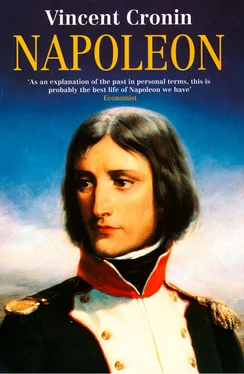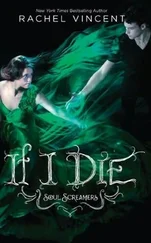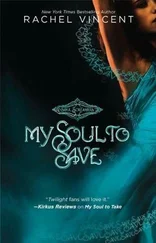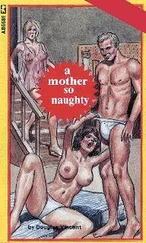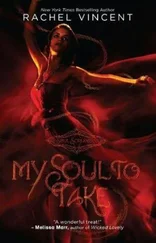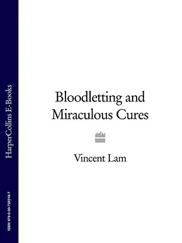Vincent Cronin - Napoleon
Здесь есть возможность читать онлайн «Vincent Cronin - Napoleon» — ознакомительный отрывок электронной книги совершенно бесплатно, а после прочтения отрывка купить полную версию. В некоторых случаях можно слушать аудио, скачать через торрент в формате fb2 и присутствует краткое содержание. Жанр: unrecognised, на английском языке. Описание произведения, (предисловие) а так же отзывы посетителей доступны на портале библиотеки ЛибКат.
- Название:Napoleon
- Автор:
- Жанр:
- Год:неизвестен
- ISBN:нет данных
- Рейтинг книги:3 / 5. Голосов: 1
-
Избранное:Добавить в избранное
- Отзывы:
-
Ваша оценка:
- 60
- 1
- 2
- 3
- 4
- 5
Napoleon: краткое содержание, описание и аннотация
Предлагаем к чтению аннотацию, описание, краткое содержание или предисловие (зависит от того, что написал сам автор книги «Napoleon»). Если вы не нашли необходимую информацию о книге — напишите в комментариях, мы постараемся отыскать её.
Napoleon — читать онлайн ознакомительный отрывок
Ниже представлен текст книги, разбитый по страницам. Система сохранения места последней прочитанной страницы, позволяет с удобством читать онлайн бесплатно книгу «Napoleon», без необходимости каждый раз заново искать на чём Вы остановились. Поставьте закладку, и сможете в любой момент перейти на страницу, на которой закончили чтение.
Интервал:
Закладка:
Napoleon’s letter had no effect. These two cases of injustice, touching his widowed mother, changed Napoleon’s whole attitude to the French in Corsica. Formerly he had accepted their presence as beneficial; now he saw that it was oppressive. Their rule in Corsica was a particular example of the injustice inherent in the French system. That rule, he decided, must be ended and Corsica again be free.
But how? At first Napoleon did not know. ‘The present position of my country,’ meaning Corsica, he noted gloomily, ‘and the powerlessness of changing it is a new reason for fleeing this land where duty obliges me to praise men whom virtue obliges me to hate.’ It took Napoleon two years to find a way. The way was a book. He would write a History of Corsica, along the lines of Boswell’s, in order to touch the French people, to rouse their feelings of humanity. Once they knew the facts, they would demand freedom for the Corsicans.
Napoleon’s History focuses attention on Corsica’s fighters for freedom against the Genoese, men such as Guglielmo and Sampiero. Napoleon intended to make Paoli his central figure, but when he asked for documents Paoli replied that history should not be written by young men. So Napoleon never finished his book. But he did write several very compelling chapters and made the point that Corsicans would have escaped subjection if only they had built a navy.
Napoleon believed that Corsica must be freed by ‘a strong just man’; equally he believed that a brave man must speak up for the French people and instigate reforms. He did not identify them – he was still thinking generally – but he asked himself, What would happen to such men? What was the fate of the reforming hero? To answer his question he wrote a short story. It is based on an incident in Barrow, and therefore set in England, but Napoleon clearly intended it to apply to the present situation in France and Corsica.
The scene is London, the year 1683. Three men plot to limit the power of the frivolous Charles II: Essex, austere, with a strong sense of justice; Russell, kind and warm, adored by the people; Sidney, a genius who realizes that the basis of all constitutions is the social contract. The conspirators are caught, Russell and Sidney executed. But the people ask pardon for Essex and the judges merely imprison him.
‘Night. Imagine a woman troubled by sinister dreams, warned by frightening sounds in the middle of the night, distraught in the darkness of a vast bedroom. She goes to the door and feels for the key. A shudder runs through her body as she touches the blade of a knife. The blood dripping from it is powerless to frighten her. “Whoever you are,” she cries, “stop. I am only the wretched wife of the Earl of Essex.”’ Instead of swooning, as most women would have done, she again feels for the key, finds it and opens the door. Far off in the next room she thinks she sees something walking but is ashamed of her weakness, shuts the door and goes back to bed.
It is eleven in the morning and the Countess, troubled, pale and oppressed, is trying to fight off a worrying dream. ‘Jean Bettsy, Jean Bettsy, dear Jean.’ She lifts her eyes – for the voice has wakened her – and she sees – Oh God! – she sees a ghost approach her bed, draw back the four curtains and take her by the hand. ‘Jean, you have forgotten me, you are sleeping. But feel.’ He draws her hand to his neck. Oh dread! The Countess’s fingers sink into extensive wounds, her fingers are covered in blood; she utters a cry and hides her face; but when she looks again she sees nothing. Terrified and trembling, broken-hearted by these frightful forewarnings, the Countess takes a carriage and drives to the Tower. In the middle of Pall Mall she hears someone in the street say ‘The Earl of Essex is dead!’ At last she arrives and the prison door is opened. Oh horrible sight! Three great razor blows have ended the Earl’s life. His hand is on his heart. Eyes raised to heaven, he seems to implore eternal vengeance.
King Charles II and the Duke of York are the murderers. ‘Perhaps you think that Jean falls down in a swoon and dishonours with cowardly tears the memory of the most estimable of men? In fact she has the body washed, taken home, and shown to the people … But in her deadly grief, the Countess drapes her rooms in black. She blocks up the windows and spends her days grieving over her husband’s terrible fate.’ Not until three years later – Napoleon gets his dates wrong – when the King has died and the Duke of York has been dethroned does the Countess leave her house. She is ‘satisfied with the vengeance exacted by heaven and again takes her place in society.’
Such is Napoleon’s short story. Most of his other writings are so calm and reasonable, it is surprising to come on this gruesome piece. But it is a facet of his character, as blood-tragedy is of Greek civilization. If the ghost comes from Corsica, and the gore from horror novels then in vogue, the basic theme is Napoleon’s own. A nobleman decides to act on behalf of an oppressed people against the King. And what is the result? He loses his life. This, Napoleon sensed, was the invariable dénouement. In his Corsican book he wrote: ‘Paoli, Colombano, Sampiero, Pompiliani, Gafforio, illustrious avengers of humanity … What were the rewards of your virtues? Daggers, yes, daggers.’
But daggers are not quite the end. Six years later Charles II and his brother are gone and a law-abiding king sits on the throne. Though Essex did not live to see it, the constitutional monarchy for which he died ultimately triumphed. There is, Napoleon believed, a higher vengeance at work. Over human affairs broods a divine regulative justice.
We have seen the reforms Napoleon wished accomplished in France and in Corsica, and the tragic fate he envisaged for the reformers. But all these notes and writings, revealing though they are, lack the unique personal touch. What did Second Lieutenant Buonaparte want to do with his own life? What were his aspirations? The answer lies in a forty-page essay which he submitted for a prize of 1,200 livres offered by the Academy of Lyon in answer to the question ‘What are the most important truths and feelings to instil into men for their happiness?’
Napoleon begins his essay with the epigraph: ‘Morality will exist when governments are free,’ an echo, not a quotation as Napoleon claimed, of Raynal’s dictum, ‘Good morals depend upon good government.’ Man, says Napoleon, is born to be happy: Nature, an enlightened mother, has endowed him with all the organs necessary to this end. So happiness is the enjoyment of life in the way most suitable to man’s constitution. And every man is born with a right to that part of the fruits of the earth necessary for subsistence. Paoli’s chief merit lies in having ensured this.
Napoleon turns next to feeling. Man experiences the most exquisitely pleasant feelings when he is alone at night, meditating on the origin of Nature. Sentiments such as this would be his most precious gift had he not also received love of country, love of wife and ‘divine friendship’. ‘A wife and children! A father and mother, brothers and sisters, a friend! Yet some people find fault with Nature and ask why they were ever born!’
Feeling makes us love what is beautiful and just, but it also makes us rebel against tyranny and evil. It is the second aspect we must try to develop and protect from perversion. The good legislator must therefore guide feeling by reason. At the same time he must allow complete and absolute freedom of thought, and freedom to speak and write except where this would damage the social order. Tenderness, for instance, must not degenerate into flabbiness, and we must never stage Voltaire’s Alzire , in which the dying hero instead of execrating his assassin pities and pardons him. It is reason that distinguishes genuine feeling from violent passion, reason that keeps society going, reason that develops a natural feeling and makes it great. To love one’s country is an elementary feeling, but to love it above everything else is ‘the love of beauty in all its energy, the pleasure of helping to make a whole nation happy’.
Читать дальшеИнтервал:
Закладка:
Похожие книги на «Napoleon»
Представляем Вашему вниманию похожие книги на «Napoleon» списком для выбора. Мы отобрали схожую по названию и смыслу литературу в надежде предоставить читателям больше вариантов отыскать новые, интересные, ещё непрочитанные произведения.
Обсуждение, отзывы о книге «Napoleon» и просто собственные мнения читателей. Оставьте ваши комментарии, напишите, что Вы думаете о произведении, его смысле или главных героях. Укажите что конкретно понравилось, а что нет, и почему Вы так считаете.
